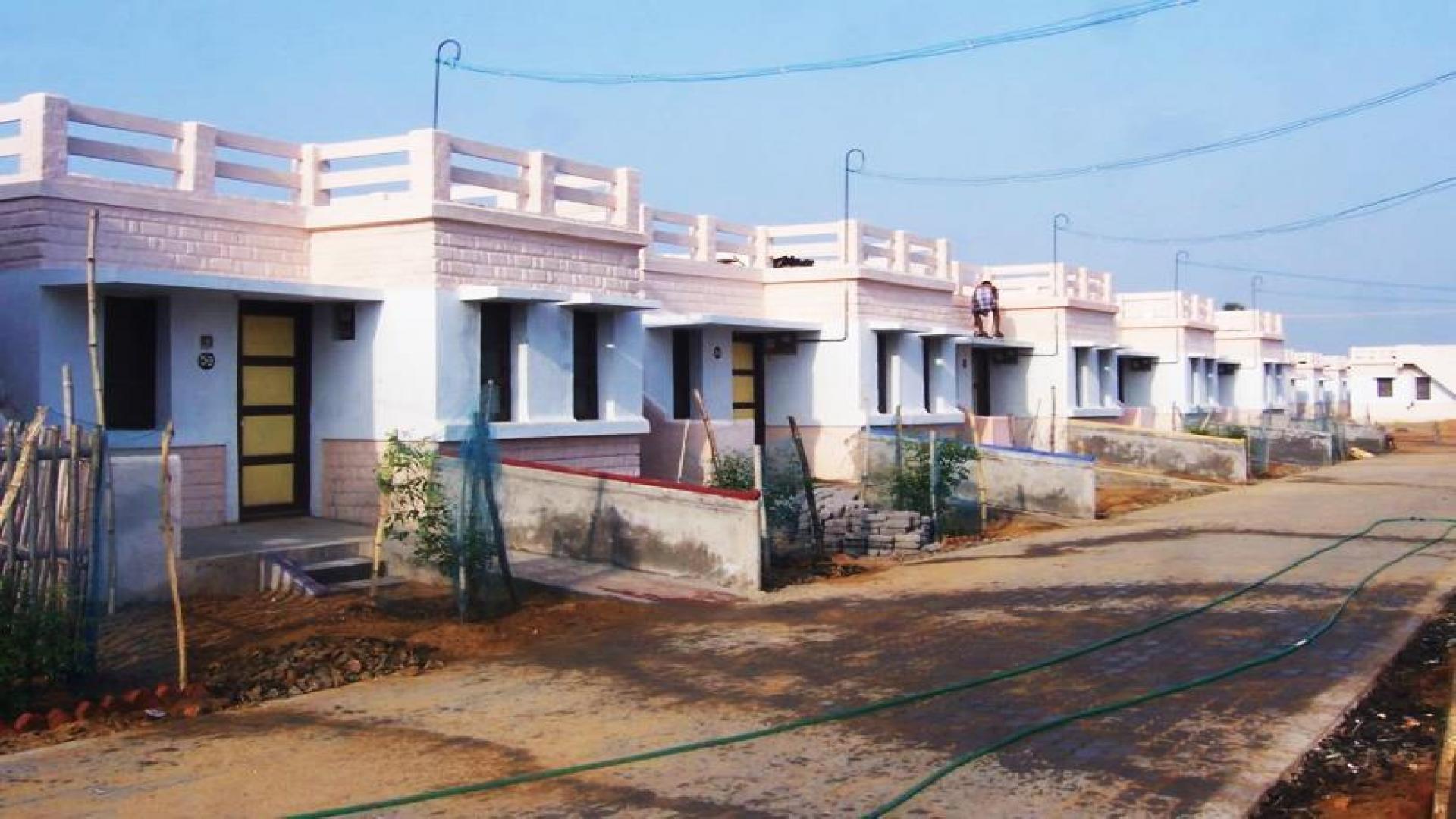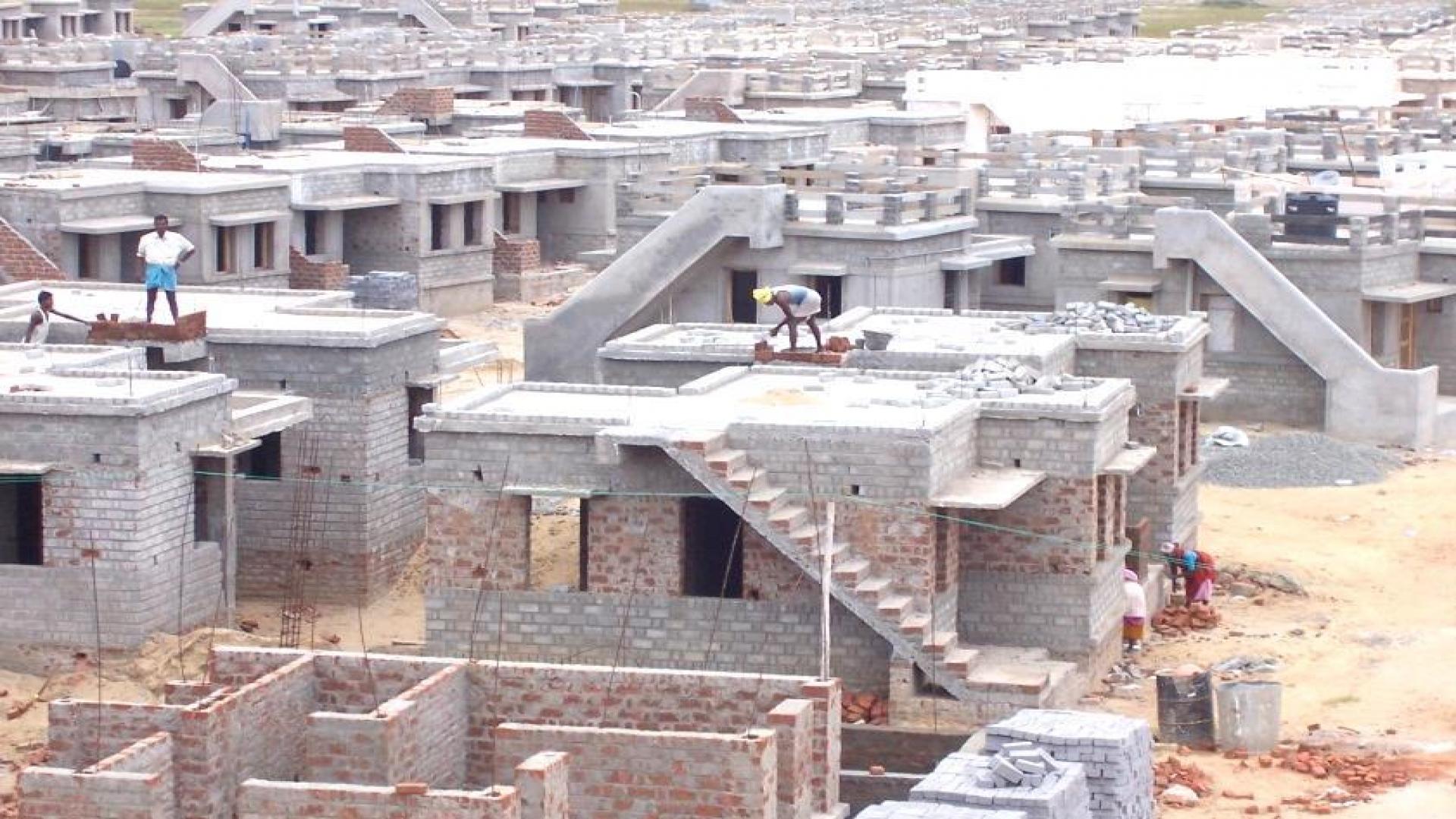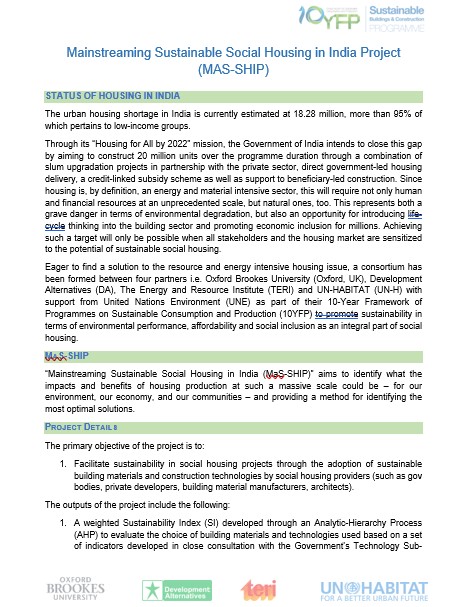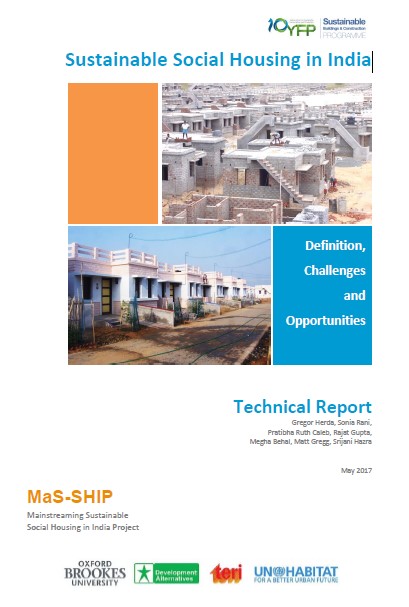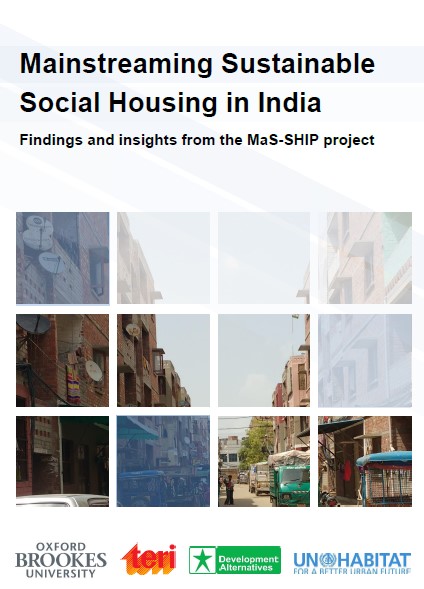Mainstreaming Sustainable Social Housing in India (MaS-SHIP)
The MaS-SHIP project in India addresses the critical shortage of housing, particularly for the Economically Weaker Segments (EWS) and Low-Income Groups (LIG). Funded by the Sustainable Building and Construction Trust Fund, it focuses on integrating sustainability into social housing through the use of eco-friendly building materials, stakeholder engagement, and policy recommendations, aligning with the government's "Housing for All by 2022" mission.
The challenges
Limited Coherent Strategies
The lack of coherent strategies to decouple socio-economic benefits from the negative environmental impacts of housing construction poses a challenge. The absence of sustainable selection criteria for building materials exacerbates this issue.
Data Gaps and Informed Decision-Making
Previous efforts faced constraints due to data gaps, particularly for newer sustainable building materials. The challenge lies in populating measurement tools with detailed information to enable informed decisions in housing projects.
Neglect of Resident Needs
There is negligence in incorporating resident needs into planning and design, leading to socially and environmentally less inclusive social housing. Discomfort due to inadequate ventilation and poor proximity to employment opportunities reflects a gap in considering resident experiences.
How to respond to them?
Comprehensive Policy Framework
Develop an overarching sustainable housing policy framework integrating resource efficiency, energy considerations, and socio-economic parameters. This framework should include implementation strategies and monitoring provisions for efficacy.
Data Enhancement Strategies
Institute mandatory disclosures, fund primary data collection efforts, and establish a centralized, open-source database for continuous updates. This strategy aims to address data gaps and enhance the understanding of factors like job creation potential.
Inclusive Design and Planning
Engage residents in the design and planning phase through awareness programs, studying their needs, and collaborative efforts. This ensures long-term buy-in, resident satisfaction, and the incorporation of sustainable options demanded by residents.
What have we achieved so far?
Policy Review
The project conducted a critical review of housing, urban development, and climate change-related policies to understand drivers, barriers, and opportunities for integrating sustainability in social housing in India.
Stakeholder Engagement
Eight stakeholder engagement workshops involving 112 organizations were held in three cities, facilitating interactive exchanges between the MaS-SHIP team and experts from diverse sectors.
Surveys and Data Collection
Surveys were conducted with building practitioners, material manufacturers, and social housing residents to gather qualitative and quantitative data on sustainability attributes, resource use, and resident experiences.
Online Survey
An online survey with about 200 experts provided relative weightings for selected sustainability attributes, contributing to the understanding of preferences in building material and system selection.
Thermal Simulation
Thermal simulations were performed to analyze the energy savings potential of selected building systems, considering climatic variations in five cities. The simulations aimed to compare the cooling or heating energy consumption of different systems.
Donors and Partners
The MaS-SHIP project is funded by the Sustainable Building and Construction (SBC) Trust Fund, which is managed by the United Nations Environment. The project collaborates with various stakeholders, including policy-makers, academics, housing developers, building material manufacturers, architects, building consultants, and the voluntary sector.
